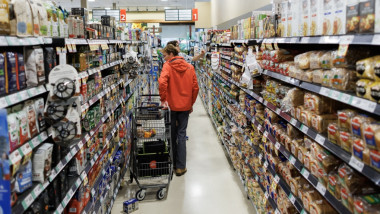Consumer Reports finds 'widespread' presence of plastics in food
Consumer Reports has found that plastics retain a “widespread” presence in food despite the health risks, and called on regulators to reassess the safety of plastics that come into contact with food during production.
The non-profit consumer group said on Thursday that 84 out of 85 supermarket foods and fast foods it recently tested contained “plasticizers” known as phthalates, a chemical used to make plastic more durable.
It also said 79% of food samples in its study contained bisphenol A (BPA), another chemical found in plastic, and other bisphenols, though levels were lower than in tests done in 2009.
Consumer Reports said none of the phthalate levels it found exceeded limits set by U.S. and European regulators.
It also said there was no level of phthalates that scientists confirm is safe, but that does not guarantee the safety of foods you eat.
